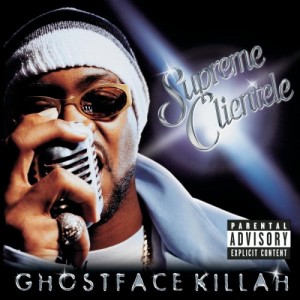Ghostface Killah And The Truth Behind Major Labels And Royalties
posted in: Music News • Urban
Ghostface Killah has made his claim to fame in the rap game, both as a member of the Wu-Tang Clan and as a solo artist. But whenever he decides to set down the mic for good, he might have a future in law, considering all the lawsuits his name is attached as of late. Ghost and Sony Music were recently sued by Jack Urbont, who composed the “Iron Man Theme,” originally created for the 1960s show “The Marvel Superheroes.” Urbont claims that Ghostface sampled the theme song on his 2000 album Supreme Clientele, as well as his use of the nickname ‘Tony Starks,’ which plays off of ‘Tony Stark,’ Ironman’s real name. Ghost’s camp argue that the lawsuit should be dismissed due to statutes of limitations. Since Supreme Clientele came out eleven years ago and was critically and commercially successful, the defendants want to know why Urbont is just finding about the song in question now.

Supreme Clientele
While defending this lawsuit, Ghostface is also suing Universal Music Group over a contract violation. Ghost claims that the major label only holds 25% in copyright interest in all Wu-Tang songs. UMG has reportedly been taking 50%, and he is suing to recover the unpaid royalties. This isn’t the first time Ghostface has sued over unpaid royalties. In 2005, he sued Wu-Tang Productions and leader RZA in a similar case where he was not being paid all of the royalties he was contractually entitled to. Ghost won this case”his suit against Universal Music Group is based partially on precedents set in the 2005 verdict.
Which brings us to an even bigger issue: why is it so hard for artists to get paid the money they have rightfully earned? In a world where album sales are a shell of what they once were, artists need every royalty check they can get. But labels are strapped for cash too, and it turns out some majors have found a new way to cut costs. In many cases, it’s cheaper for the labels to simply not pay royalties and wait to be sued. Many artists either don’t realize that they’re not receiving royalties, or don’t have the money and name recognition to go after the top notch legal team of a major label. For every artist like Ghostface who sues their label, there are countless others who have been stiffed of their royalties that won’t.
In the end, labels need to honor the contracts they sign with their artists if they want to stay relevant in the 21st century. Artists are relying less and less on labels in order to make it, and the next generation of superstars may not be as eager to sign on with a major label if they know they will get cheated out of money.
